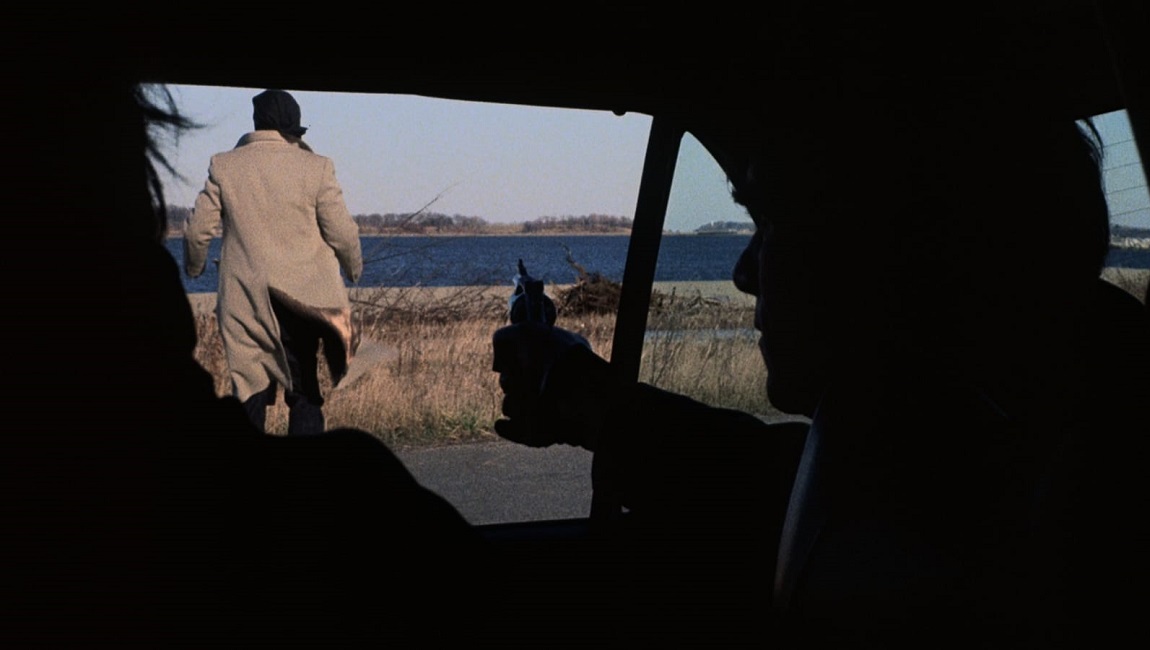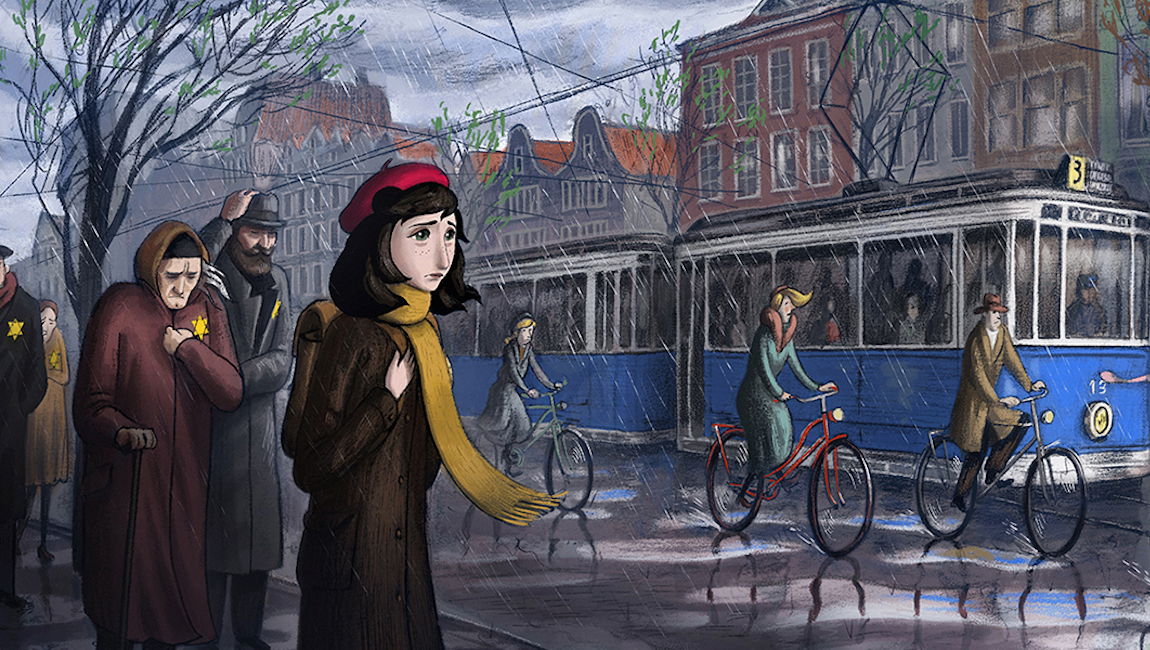Appropriate for a film set in and around Boston, Peter Yates’ 1973 crime-drama The Friends of Eddie Coyle is about a man who mistakenly believes he’s at the hub of the universe only to come to the sad conclusion that he’s an easily replaceable cog. Robert Mitchum’s title character is a well-liked, middle-aged intermediary, floating between assorted criminal figures in the Boston underworld. Eddie predominantly facilitates illegal gun sales to supply a crew of bank robbers, trying to scrape together as much money as possible before facing sentencing on a conviction in New Hampshire for driving a truck filled with stolen whiskey. Eddie’s considered a standup guy who’s done time and kept his mouth shut, but that was in the past. He’s fifty now, and spending even a handful of years in prison away from his family has him considering his options and desperate to make moves. He might be looking to trade in one set of friends for another, but, between the mob and the feds, no one can be credibly accused of looking out for him.
Even this film’s title can be interpreted as faintly mocking Eddie, diminishing his prominence within his own life story. But it also speaks to the film’s dispersed, practically egalitarian approach to scene-setting: sketching out a working-class hierarchy of lowlifes and street-level operators who conduct business out of the trunk of their cars at the grocery store or at an MBTA station. The stickup crew knocking over banks all over the South Shore, led by Jimmy Scalise (played by famed character actor, and one-time real-life Winter Hill Gang associate, Alex Rocco), doesn’t know about wiry gun dealer Jackie Brown (Steven Keats) and all his headaches selling machine guns to hippie, would-be revolutionaries. And Jackie, in turn, doesn’t know Dillon (Peter Boyle), a button man that fronts a mob bar who, true to his day job, appears to be the straw that stirs the drink. But that’s what Eddie’s for, dourly acting as a go-between, shuttling cash and guns all over town so none of these people ever have to be in the same place at the same time. It all has Eddie wondering whether the various names and dealings to which he’s privy might be enough to feed to ATF agent Dave Foley (Richard Jordan, who’d reteam with Mitchum only a year later on The Yakuza) to curry favor with the judge in New Hampshire. But there’s no shortage of wiseguys talking to the cops, which puts Eddie in an awful spot, crippling his ability to negotiate a favorable deal for himself while also drawing unwanted attention from some of those former friends.
Mitchum was already in his mid-50s when he shot The Friends of Eddie Coyle and looks considerably older than that here. His face is ashen and jowly, his hair looks dry, and he’s costumed in unflattering earth tones and grays, as if the lifeforce itself has been drained out of him. There’s a practiced gravitas to the performance, with the actor imposing his will through force of personality, all without ever raising his famed baritone drawl. Yet we come to understand how performative that confidence is, and how much he’s the proverbial duck sitting on a lake: calm above the waterline but all frantic movement under the surface simply to keep afloat. With prison only days away, Eddie can’t find more than a few minutes of time for his wife and kids (the ones who he claims couldn’t stand to see him go back to jail), instead spending his final days of freedom brokering deals for fistfuls of cash, only to turn around and flip those same business contacts to Foley. He’s simultaneously squirreling away for a future that doesn’t exist while recklessly taking a flame to every bridge back to his old life.
Mitchum’s screen persona was primarily that of a heavy, with the actor radiating malevolence and projecting strength simply in how he carried himself. This film cuts against that image, painting Eddie almost as a pitiful figure unaware of the forces at work conspiring against him. When it counts the most, Eddie is utterly oblivious; he’s either blinded by his faith in institutions and the word of untrustworthy people, or he’s drunk himself into a stupor at a time when he should probably keep his wits about him. The character is a loser who doesn’t realize how much he’s viewed as a cautionary tale for all the other crooks in the film, humoring his hard luck tales of woe only for so long before growing restless and changing the subject. And for all his performative bravado, he’s reduced to pleading with Foley to reward his finking with just a little life rope. When the character does finally meet his ignoble end, he couldn’t make it easier for his killer: passed out in the passenger seat of a car, unaware of the revolver put to his forehead. Like the weather in New England, he’s in like a lion, out like a lamb.
The Friends of Eddie Coyle was directed by British filmmaker Peter Yates, whose immediately preceding film was The Hot Rock (1972), a breezy heist flick that takes its cues from the laid-back charms of its star, Robert Redford. The earlier film treats crime as a series of high-wire acts with elaborate plans involving dozens of moving pieces (at various points, helicopters and hypnotists are employed) and has a tone that resides somewhere between perpetual amusement and admiration. There’s nothing like that in Eddie Coyle. Holding up a bank here is presented as an act of patience, research, and cold determination; the plans themselves prey upon the fear of bank employees and empathy for the branch manager whose family, the robbers are told, is being held at gunpoint. Yates shoots the film’s two robbery sequences with precision but also clinical detachment, as if the whole thing were merely a very large withdrawal (that is, of course, until one of the employees triggers the silent alarm and pays dearly for it). The same goes for the film’s aborted car chase, which is as clumsy and abrupt as the one in Bullitt — another Yates–directed film — is thrilling and distended. In other words, in Eddie Coyle, being a criminal is treated as if it were any other standard blue-collar job — which, then, makes it more understandable why people would fall into the line of work, even as its depiction is scrubbed clean of any glamor or excitement.
But it’s not just that the criminal life lacks glamor here; it’s also down to the particulars of the actors and settings as well. Everyone looks awful, with shaggy and windswept haircuts, or skin that appears clammy or pocked with blemishes. Jordan even has a prominent unibrow. All the characters seem like they eat badly, drink too much, or don’t get enough sunshine — which is an apt way of characterizing many people who live in the northeast (lest there be claims of casting aspersions, please note this writer spent the first eighteen years of his life living in the greater Boston area). The film’s locations are functional yet industrial-looking. Overwhelmingly, scenes are staged in underpopulated bars or depressing-looking cafeterias. The film’s final set piece takes place during a Bruins game at the old Boston Garden, capturing the hive-like energy of the building but also how damp and claustrophobic it was. You can practically smell the sweat coming through the screen.
This all speaks to Eddie Coyle’s lived-in sense of authenticity, but also to its ingrained understanding of labor. These are characters of modest means, modest intelligence, and modest ambitions; everyone’s just kind of scraping by and dealing with the constant hassles that come with the line of work. Eddie believes himself to be a private contractor, but really he’s a glorified middle manager. He’s able to provide for his family but little else. The character’s been lulled into a false sense of security, failing to recognize how expendable he actually is once the going gets tough. There have been more stylish, or more conventionally thrilling, crime-dramas, yet this film endures because it genuinely captures the clock-punching drudgery of “the life,” as well as the sensation of constantly being behind the eight ball. It demystifies a century’s worth of gangster movies (notably, it was released by Paramount in between the first two Godfather films, which, for all their undeniable strengths, present organized crime from the top down with little interest in the life of a lowly mafia soldier), by acknowledging that these people still have to answer to someone and that, while loyalty is a term that gets bandied about a lot, these are ultimately transactional relationships. You’re only as valuable as you are useful, and there’s always someone behind you who can take your place; that’s as fitting now as it was then.
Published as part of InRO Weekly — Volume 1, Issue 25.
Enjoy our content? Want early access to features, interviews, and more? Support us on Patreon!







